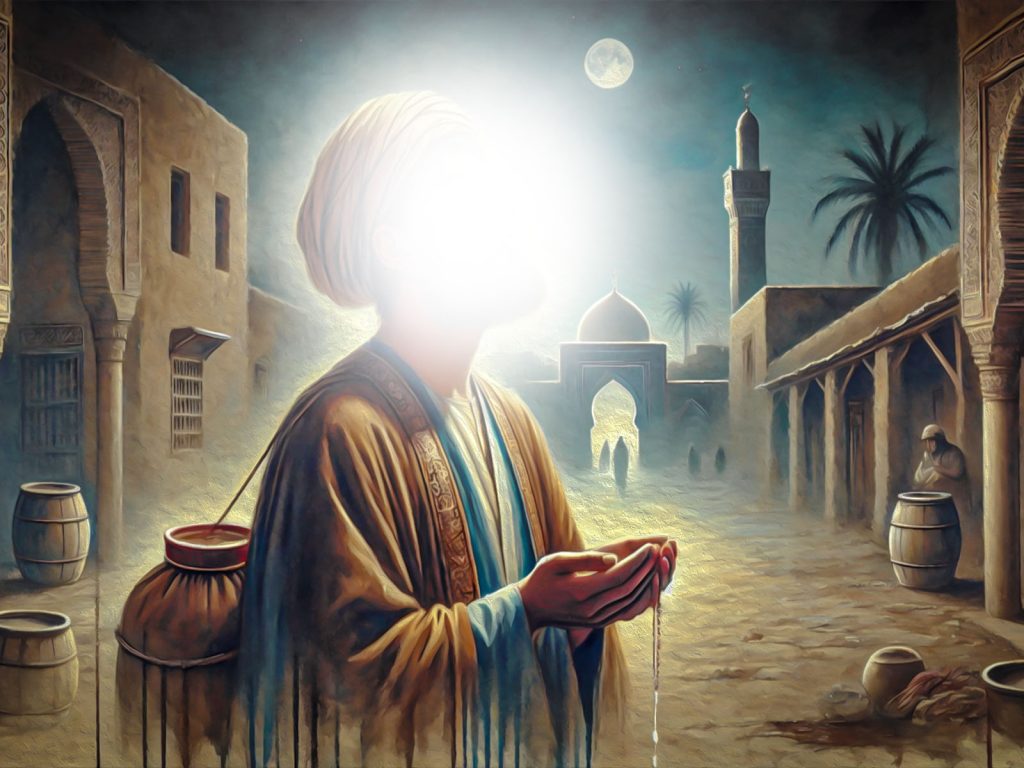Amir al-Muminin (PBUH) began his economic activities from point zero. It was so extreme that he didn’t have enough to eat in the first few years of the Hijrah. But holding steadfastly to the power of faith, thought and effort, Amir al-Muminin (PBUH) attained great successes in a somewhat short period, all to the extent that he was able to financially support hundreds of families.
As evident in various sources the Imam was very active in various areas of the city of Medina during and even before his rule. He was engaged in construction projects such as the digging of numerous wells, setting up farms and palm gardens. What was obvious in all of this was the efforts of Amir al-Muminin (PBUH) for establishing Islamic and humane institutions for the satisfaction of Allah and the comfort of man, efforts that were far from greed, and showing off. For many people of the time, such an example was not very understood and some of them would even accuse Amir al-Muminin (PBUH) of poverty and pennilessness.
Along these lines, direct monetary help to the poor, those families who had lost their jobs or income providers were first to be taken care of in the distribution of his wealth. What people had a chance to see throughout his lifetime was how the Imam took care of the needs of others before his own needs.
Amir al-Muminin (PBUH) had this practice in life not only in the last years of his life which he owned great wealth but even during the poverty years in the beginnings of the Hijrah. It was such that various verses in the Quran were revealed about the sacrifice and magnanimity of the Imam, such as the verse of giving [1], verses from the chapter “The Night” and the verse of Wilayat [2], verses from the chapter “Time” [3], verse 274 of the second chapter “The Cow, and verses 37 and 38 of the chapter “The Light”.
These verses show the giving attitude of the Imam even in a time of his own need. In the final years of the life time of the Imam, the revenue from his crops was a good 40,000 Dinars (gold coins), almost all of which was spent towards the needs of those in need, and his own share was so small that at times he had to sell his own sword to cover his costs.[4]
Muhammad ibn Semah narrates, “One night in Medinah I saw a man who had leathered-skin pouch on his shoulders and a bowl in his hand who would say, ‘O Lord! O You who are in charge of all affairs and the Creator and the haven of the pious. Please accept my sacrifice tonight. I have left my house tonight in need and have nothing but this bowl and what I have in this pouch. You are aware that despite my grave hunger and the need that I have to this pouch, I have brought it as an offering to You. O Lord! Then do not turn me away and accept my prayers.’ I then approached him and recognized him. He was Ali ibn Abi Talib. He went towards a man and gave him food.”[5]
According to this, the economic success of Amir al-Muminin (PBUH) is a magnanimous act because it was based on the understanding of humanity; the topic widely discussed in today’s world about humanity is totally different. In the view of Ali (PBUH), man is Allah’s (SWT) servant. Thus, his true prosperity remains not in the material margin of revenue, but in the attainment of the satisfaction of the Lord.
(Selection from Imam Ali’s encyclopedia, vol. 7, article “Economical practices of Imam Ali (PBUH)”)
Footnotes:
[1] (Surah Al-Hashr, verse 9)
[2] (Surah Al-Ma’idah, verse 55)
[3] (Surah Al-Insan, verses 8-10)
[4] Ansaab al-Ashraaf, vol. 2, pg. 117 – al-gharaat, vol. 1, pg. 63
[5] Manaqib Ibn Shahr Ashoob, vol. 2, pg. 76



